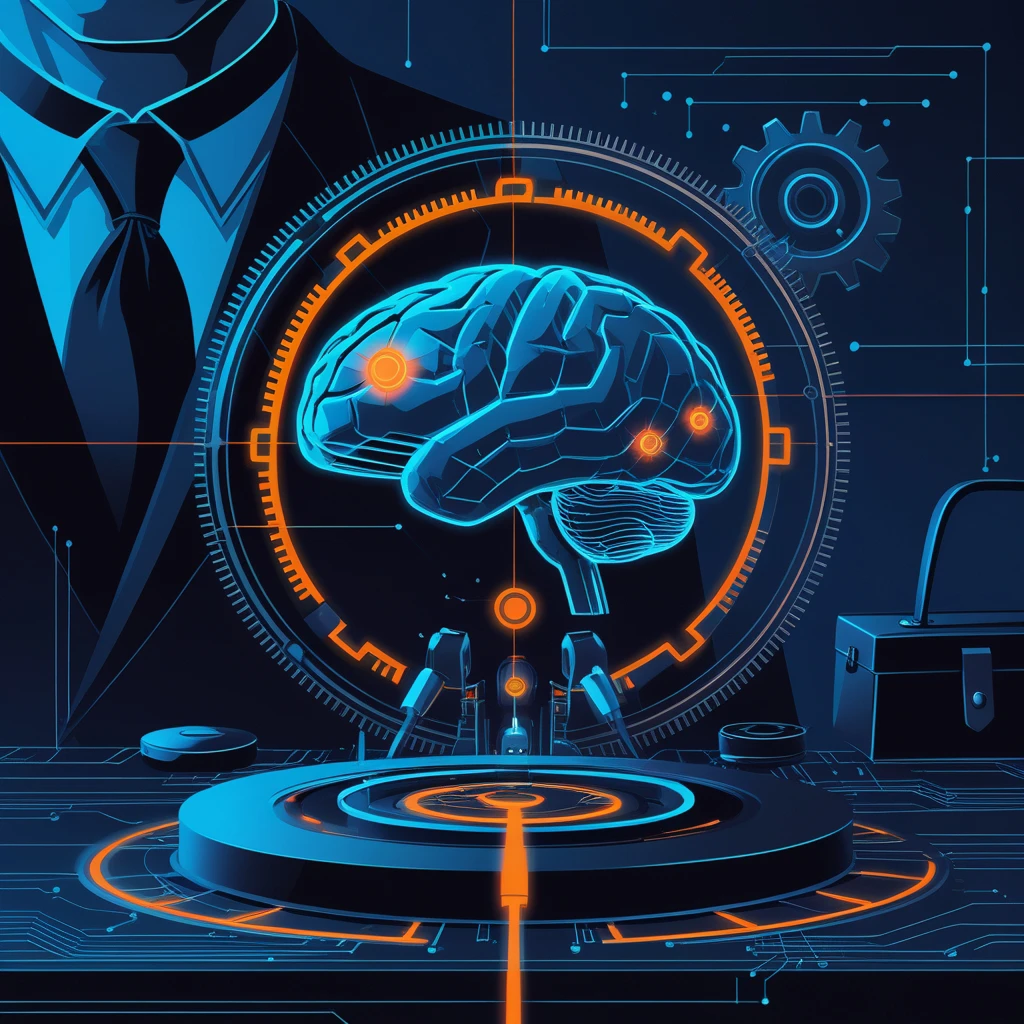The Rise of Artificial Intelligence in Finance: Transforming an Age-Old Industry
Have you ever stopped to think about how technology has become an invisible hand navigating finance’s intricate world? In an age where machines learn, adapt, and strategize, artificial intelligence (AI) is not a harbinger of the future but a pivotal player of the present. The financial sector, often known for its stringent adherence to tradition, is now witnessing a disruption so profound that it is reshaping the very conventions it once held dear. This transformation begs the question: Is AI the financial industry’s greatest ally or a formidable foe poised to upend established systems? Let’s delve deeper.
The Intersection of Finance and Artificial Intelligence

Artificial Intelligence is more than just an advanced technology; it’s the new framework upon which the financial world is poised to rebuild itself. Through machine learning algorithms and predictive analytics, AI can dissect large volumes of data with unmatched speed and precision, offering insights far beyond the reach of human capability. This revolution hasn’t just started; it is well underway, fundamentally altering how finance professionals envision markets and risks.
| Aspect | Traditional Method | AI Approach |
|---|---|---|
| Data Analysis | Manual processing by analysts | Algorithm-driven, handling massive datasets |
| Risk Management | Static models based on historical data | Dynamic, adaptive models |
| Customer Service | Human-operated helplines | 24/7 Chatbots and AI-driven support |
| Investment Strategies | Human intuition and experience | AI-driven sentiment analysis and predictions |
Financial Predictive Power of AI
The true strength of AI in finance lies in its predictive power. By analyzing historical data patterns, AI can anticipate market trends and movements, providing unprecedented foresight. This capability is crucial for stakeholders who must navigate volatile markets. AI’s predictive prowess doesn’t stop at markets; it extends into risk management for financial institutions as well. AI rapidly assesses and mitigates risks, enhancing decision-making in real time.
AI-driven Customer Experiences
“People do not buy goods and services. They buy relations, stories, and magic.” This quote by Seth Godin underscores the evolving relationship between customers and service providers, driven by AI. Today’s customers demand seamless experiences, and AI delivers just that. From chatbots capable of handling multiple queries simultaneously to personalized financial advice generated through data analysis, AI transforms customer interaction into a fluid, responsive experience. Financial firms employing AI can anticipate customer needs before they’re even articulated, fostering a proactive, rather than reactive, service approach.
The Ethical Dilemmas of Finance Automation
While AI’s potential is enormous, it does not come without its ethical minefields. Automated systems raise questions about transparency and bias—how decisions are made and whether these algorithms can unintentionally perpetuate biases entrenched in the data they’re fed. Moreover, the broader implications of job displacement within the financial sector invite scrutiny. As AI systems increasingly perform roles once held by human workers, how can the industry ensure a balance, where technology supports rather than supplants human expertise?
Investment Strategies: Human Versus Machine

The investment landscape is ever-changing, and AI is finding its foothold by crafting sophisticated investment strategies. Algorithms can sieve through financial news, social media, and market reports at lightning speed, serving investors with predictive insights far beyond human reach. In contrast to purely human-led strategies reliant on intuition and experience, AI offers a data-centric approach that could redefine investment strategies. But can machines completely replace the seasoned investor’s gut feeling? The debate continues.
The Rise of Robo-Advisors
Robo-advisors have stormed the financial advisory scene, democratizing access to financial planning. With low operational costs, they offer tailored advice previously available only to affluent customers. These AI-powered tools analyze personal financial situations and goals to provide personalized advice, often at lower fees than traditional advisors. Yet, the question remains—can robo-advisors build the same client trust and rapport that human advisors offer? As robo-advisors gain popularity, the importance of their role in financial democratization cannot be overlooked.
AI in Fraud Detection and Compliance

In the domain of fraud detection, AI shines with its unparalleled ability to monitor transaction patterns and raise alerts on unusual activity. Unlike traditional systems that struggled with the volume and velocity of data, AI operates in real-time, catching discrepancies that might slip through human oversight. As compliance regulations tighten globally, institutions leveraging AI can ensure adherence more robustly, reducing the risk of costly penalties.
Data Privacy Concerns in AI Deployment
However, the use of AI is not without challenges, particularly regarding data privacy—a critical issue in the financial industry. AI’s efficiency hinges on vast datasets, often rich with sensitive information. Ensuring this data is protected against breaches and misuse is paramount. Measures such as robust encryption, strict access controls, and continual monitoring become crucial components of any AI deployment strategy in finance. Trust in AI hinges not just on its capability but its capacity to safeguard client data.
FAQ – Common Queries
How does AI enhance financial analysis?
AI enhances financial analysis by leveraging algorithms to process and interpret large volumes of data quickly and accurately, providing insights and predictions that outperform traditional methods.
Can AI fully replace human financial advisors?
While AI tools, like robo-advisors, offer precise and cost-effective solutions, they lack the personal touch and nuanced understanding that human advisors provide. A hybrid approach is often best.
What are the risks associated with AI in finance?
Risks include data privacy concerns, potential algorithmic bias, and over-reliance on automated systems which might lack the nuanced judgment of human analysis.
How is AI improving risk management?
AI improves risk management by providing dynamic and adaptive analysis tools, which assess and mitigate risks in real time, enhancing decision-making and efficiency.
What ethical concerns are raised by AI in finance?
Ethical concerns include job displacement, algorithmic transparency, and potential biases in AI systems that could perpetuate existing inequalities in financial services.
Why is there a trust issue with robo-advisors?
Trust issues stem from the lack of human interaction and personalized rapport, crucial for many clients when discussing complex financial matters.
Conclusion
Artificial Intelligence in finance is not a distant frontier but a present reality reshaping an entire industry. It promises efficiency, insight, and innovation, yet with these advancements come responsibilities. Stakeholders in finance must navigate the ethical dilemmas and regulatory challenges intrinsic to AI’s deployment. As the financial landscape continues to evolve, the harmonious integration of AI and human expertise will likely become the new benchmark of success. Embracing AI without forsaking the human element could redefine not just strategies but the very ethos of finance. The future of finance lies in this delicate balance, crafting a partnership that honors tradition while charting new territories.


